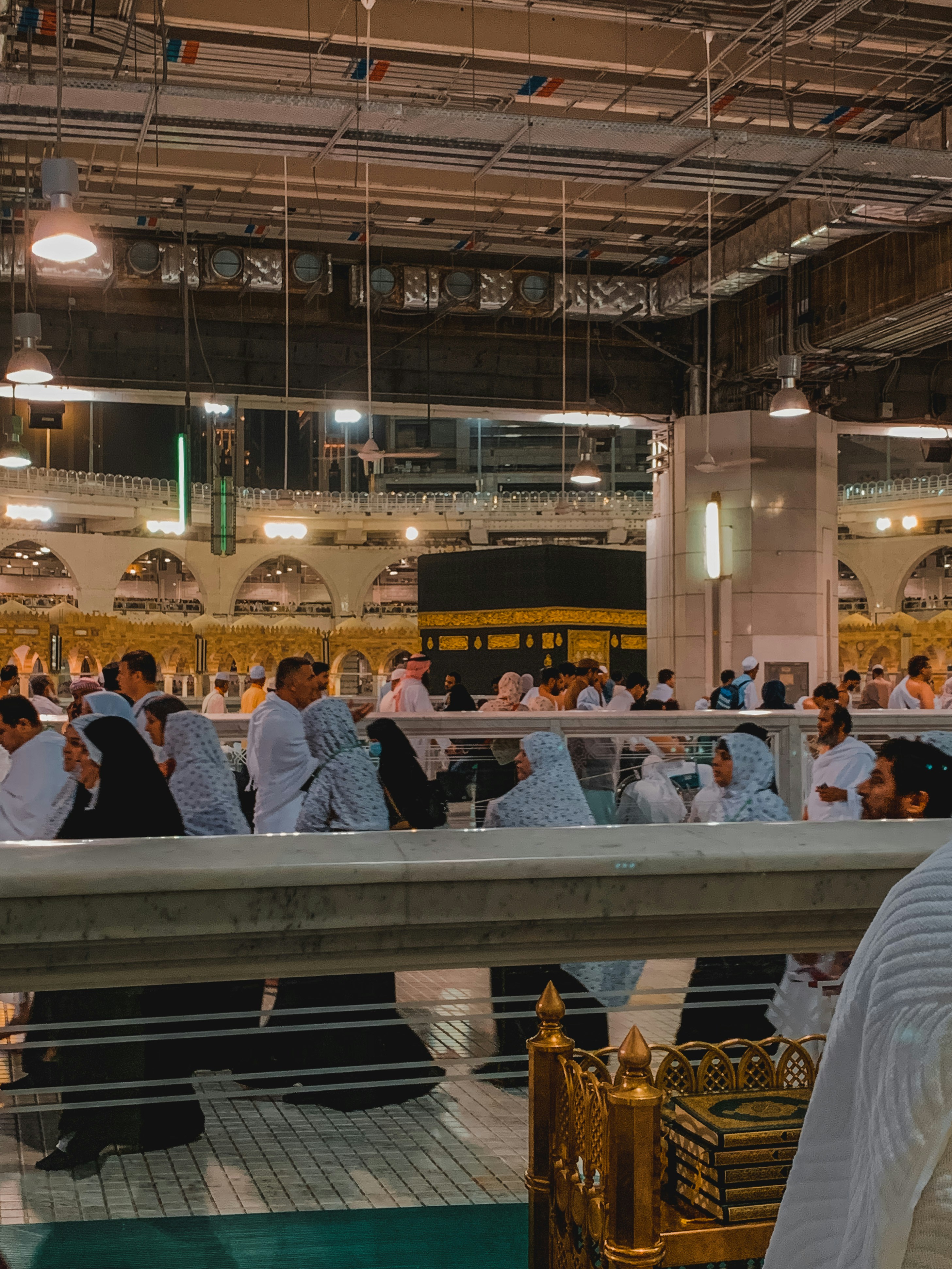Why is Gen Z Getting More Religious? Exploring the Latest Trends

Gen Z
Introduction to the Phenomenon
The increasing religious interest among Generation Z (Gen Z) constitutes a noteworthy phenomenon in contemporary society. Traditionally, the trend has been toward secularism, with previous generations demonstrating a decline in religious affiliation and active participation in spiritual communities. However, emerging data indicates a shift within Gen Z, characterized by heightened interest in spirituality and varying forms of religious expression. This blog post aims to delve deeper into this trend, as discussed extensively in Vox’s call-in podcast, offering insights into the motivations and implications behind this evolving landscape.
Gen Z, typically defined as individuals born from the mid-1990s to the early 2010s, is experiencing significant social, cultural, and technological changes. These shifts have prompted a reconsideration of traditional belief systems and values, facilitating a renewed engagement with spirituality and organized religion. Unlike the millennials who preceded them, many Gen Z individuals are seeking community, meaning, and identity through religious exploration rather than outright rejection of faith-based practices. The growing interest among this generation raises pertinent questions about the future trajectory of religious affiliation and its role in societies that are becoming increasingly diverse and interconnected.
The emergence of this phenomenon may be attributed to various factors, including the global crises witnessed in recent years—such as the COVID-19 pandemic—which have contributed to a search for deeper meaning and connection. Additionally, the acceptance of diverse belief systems and the embrace of inclusive practices within religious contexts are appealing to younger individuals. This evolving dynamic illustrates more than just statistical trends; it signifies a shift in perspectives that may reshape religious landscapes and cultural paradigms for years to come. As we explore this topic further, we will consider the implications of this heightened religiosity in Gen Z and its potential impact on future generations.
Understanding the Characteristics of Gen Z
Generation Z, often referred to as Gen Z, encompasses individuals born from the late 1990s to the early 2010s. This cohort is recognized for its remarkable adaptability and resilience, shaped by a unique array of global events and technological advancements. Growing up in an era marked by rapid change, Gen Z has developed a distinctive worldview intertwined with social movements, digital communication, and a heightened awareness of global issues.
One of the defining traits of this generation is their strong emphasis on inclusivity and social justice. Witnessing significant shifts in societal norms, including movements such as Black Lives Matter and climate activism, has made Gen Z acutely aware of inequality and systemic injustices. These experiences have profoundly affected their values, leading many in this generation to seek communities that reflect their beliefs. As a result, it is not uncommon for Gen Z individuals to gravitate toward religious and spiritual communities that promote social equity and environmental stewardship.
Additionally, technology plays a crucial role in shaping Gen Z’s interactions with spirituality and religion. The rise of social media has not only influenced how they communicate but has also transformed their engagement with faith. Online platforms allow for the exploration of diverse spiritual practices beyond traditional doctrines, enabling them to curate their belief systems tailored to their unique perspectives. This digital landscape creates opportunities for cross-cultural exchanges and the sharing of ideas that were previously constrained by geographical boundaries.
Moreover, Gen Z’s inclination toward individualism manifests in a search for personal authenticity and meaning. Many members of this generation prioritize experiences over material possessions, often leading them to explore spiritual paths that resonate with their core values. As such, this generation is less likely to adhere strictly to organized religion and more inclined to adopt a personalized approach to their faith journey.
Societal Factors Influencing Religious Interest
In recent years, there has been a notable increase in religious interest among Generation Z, primarily shaped by an array of societal factors. One of the most significant influences is the community aspect, which plays a vital role in the lives of young individuals seeking a sense of belonging. As Gen Z navigates a world marked by social and political turbulence, many young people find solace in communal religious practices that foster connection and support. These communal environments provide not only a place to worship but also a network of relationships that can be crucial during challenging times.
Family dynamics also contribute to this trend. In various families, especially those who have retained strong religious traditions, younger members often find themselves drawn to their family’s beliefs and practices. The family unit can act as a powerful influence, encouraging exploration of faith as a source of stability. As they observe the values passed down through generations, Gen Z may develop a deeper appreciation for the teachings of their family’s faith, prompting them to engage more actively in religious activities.
Moreover, the search for belonging amid global uncertainty has heightened the importance of spirituality and faith. With issues such as climate change, social injustice, and economic instability pervasive in their lives, many individuals from Generation Z are seeking grounding and purpose. Religion can offer frameworks for understanding complex issues and provide hope and resilience. This search for meaning often leads to a renewed interest in spiritual practices and ethical living, which resonate with the values and concerns of younger generations.
Consequently, the interplay of community support, family influences, and the quest for belonging during turbulent times significantly affects Gen Z’s approach to religion. By examining these societal factors, it becomes clear how they converge to shape the spiritual landscape of this generation.
The Role of Social Media in Shaping Beliefs
In the digital age, social media has emerged as a powerful tool for individuals, particularly among Generation Z, to explore and express their beliefs, including their religious views. Platforms such as Instagram, TikTok, and Twitter offer unique environments that foster spiritual dialogue, allowing users to connect with others and engage in discussions about faith. This connectivity presents opportunities that traditional religious institutions may not offer, especially for young people who might feel disenfranchised by conventional practices.
One of the notable ways social media influences belief systems is through the establishment of online communities. These virtual spaces provide a refuge for Gen Z individuals to share their experiences and questions about faith without the fear of judgment often associated with traditional religious gatherings. Influencers and content creators dedicated to discussing spiritual topics have gained substantial followings, helping to create inclusive dialogues around diverse belief systems. Their ability to articulate personal stories and interpretations makes spirituality more accessible and relatable to youth who may find traditional teachings less relevant.
Additionally, social media platforms facilitate the sharing of resources and teachings that enhance understanding of various religions. Videos, podcasts, and educational posts enable users to glean insights into different beliefs, encouraging open-minded exploration. Youth can dive into theological discussions, ask questions, and receive feedback from a worldwide audience, enriching their religious experience. This shift not only promotes knowledge but also fosters acceptance and empathy among young people with diverse faith backgrounds.
Therefore, the role of social media in shaping the religious landscape for Gen Z cannot be overstated. By breaking down traditional barriers and creating new pathways for spiritual exploration, these platforms empower young individuals to cultivate their faith in a manner consistent with their lifestyles and values. As social media continues to evolve, its influence on how beliefs are formed and expressed will likely remain profound.
Counteracting Points: Skepticism and Disbelief
While there is a notable trend of increased religious engagement among some members of Generation Z, it is essential to consider the contrasting viewpoints that emerge from this demographic. Many young individuals express skepticism and criticism toward organized religion, stemming from a variety of complex social, cultural, and personal factors. One significant aspect of this skepticism arises from their perception of established religious institutions as outdated or disconnected from contemporary societal issues.
Generation Z is characterized by a heightened awareness of social justice, equity, and inclusiveness. Consequently, they often find themselves questioning the traditional doctrines and practices of organized religions that may not align with their values. Issues such as gender equality, LGBTQ+ rights, and racial justice come to the forefront, with many young people feeling that these institutions have not adequately adapted to reflect modern beliefs and ethics. Such a disconnect can lead to disillusionment and retreat from traditional forms of worship.
Moreover, the search for authenticity plays a critical role in shaping the spiritual journeys of Gen Z. In an age dominated by digital communication and social media, young individuals are more inclined to engage with spirituality in personal or informal ways, often eschewing the structured guidelines of established religious frameworks. This generation seeks genuine expressions of faith that resonate on an emotional and experiential level, leading them to explore alternative belief systems or newer spiritual movements that prioritize individual beliefs over strict adherence to longstanding traditions.
The balance between tradition and modern belief systems is precarious for Generation Z. They yearn for a spiritual identity that is both personal and relevant, creating a tension between embracing heritage and pursuing newer paths that echo their contemporary values. This ongoing struggle shapes a diverse landscape of belief among young people, indicating that while some may find solace in renewed religious commitments, others remain firmly rooted in skepticism and a desire for meaningful, authentic connections with spirituality.
Shifts in Religious Observance and Practices
Recent studies indicate a notable evolution in the religious practices and observance characterizing Generation Z. This cohort, typically defined as those born between the late 1990s and early 2010s, is distinct in its approach to spirituality and faith. Unlike previous generations, Gen Z is not merely redefining religious boundaries; they are actively reconstructing their spiritual engagement to align with contemporary values and personal beliefs.
One prevalent trend among Gen Z is the rise of contemporary spirituality. This movement encompasses a broader understanding of spirituality beyond traditional religious frameworks, integrating practices like mindfulness, meditation, and holistic wellness. Many young individuals in this generation emphasize a personal connection to the divine, often prioritizing experiential aspects of faith over institutional affiliations. As a result, traditional rituals may be adapted or replaced with personalized spiritual practices that resonate more deeply with individual experiences and social issues.
Additionally, Gen Z is increasingly inclined to curate their own religious narratives. Many young people are exploring diverse faith traditions, allowing for a blend of practices from various religions or adopting elements that foster a sense of belonging and community. This trend is often coupled with a critical approach to religious doctrines, prompting a reevaluation of inherited beliefs. Social media platforms play a crucial role in this exploration by providing spaces for dialogue, shared experiences, and the discovery of new spiritual perspectives.
Another significant shift is the heightened importance of authenticity in religious expression. For Gen Z, practicing faith is less about conformity and more about genuine connections with others who share similar values or challenges. This generation is more likely to engage in discussions around faith and spirituality in informal settings, making them less reliant on traditional religious institutions while still seeking a community built on shared belief systems. These dynamic changes reveal a profound transformation in how this generation approaches religious observance, highlighting a move toward more personalized and inclusive experiences.
Statistical Insights and Research Findings
Recent studies indicate a notable shift in religious engagement among Generation Z, a demographic often characterized by its diverse and progressive views. According to a 2022 survey conducted by the Pew Research Center, about 30% of Gen Z individuals identify as religiously affiliated, a significant increase from previous years. This resurgence in interest in spirituality stands in contrast to the rising trend of religious disaffiliation observed in older generations. The reasons behind this shift appear multifaceted, blending a search for community, identity, and meaning within a tumultuous cultural landscape.
Moreover, the same survey reveals that about 45% of Gen Z respondents engage in some form of spiritual practice. This includes not only traditional worship but also alternative spiritual activities such as meditation and mindfulness practices. These findings suggest that while formal religious participation may be declining, the quest for spiritual fulfillment remains strong within this cohort. Additionally, a study published in the Journal of Social Issues highlights how social media serves as a vital tool for Gen Z’s exploration of spirituality, allowing them to connect with religious communities in innovative ways.
Experts have noted that larger societal factors play a significant role in this trend. A 2023 study by the American Psychological Association found that Gen Z is more likely to experience anxiety and existential concerns, prompting a deeper inquiry into faith and spirituality as individuals seek solace and guidance. Furthermore, the rise of global movements centered around social justice and inclusivity resonates with Gen Z’s values, leading to a reconceptualization of what it means to be religious in today’s world. It implies that spirituality for many in this generation may be less about dogma and more about purpose and social connection.
Expert Opinions on the Trend
The resurgence of religious interest among Generation Z has attracted the attention of sociologists, religious leaders, and educators, each offering unique insights into the implications of this phenomenon. Sociologists have identified a sense of community as a driving factor. They argue that amidst the immense challenges faced by this generation, including social isolation exacerbated by digital communication, young individuals seek solace and belonging within religious frameworks. Social identity theory supports this, suggesting that by aligning with a faith community, Gen Z members can foster a collective identity that provides emotional support and shared values.
From the perspective of religious leaders, the increased religiosity among Gen Z can be seen as a reaction against the secularization trend observed in previous generations. Many leaders argue that younger individuals are yearning for deeper meaning in their lives, particularly in uncertain times. They emphasize that this trend offers a vital opportunity for faith groups to engage with youth authentically and inclusively, adapting their messaging to resonate with contemporary values such as social justice and mental well-being. This adaptation could facilitate a more profound commitment to religious practices that emphasize compassion, community service, and collective action.
Educators have also weighed in on the importance of integrating discussions about spirituality into school curriculums. They highlight that an openness to diverse religious beliefs can foster empathy and understanding among peers. This educational approach aligns with Gen Z’s characteristics, which include a strong inclination toward inclusivity and a desire to address global issues collaboratively. By promoting dialogue around spirituality in academic settings, educators can empower students to explore their own beliefs while appreciating the faiths of others.
Overall, these expert opinions converge on a common theme: the growing religiosity of Generation Z may reflect their quest for connection, meaning, and purpose in a rapidly changing world, encouraging broader societal implications for how faith communities engage with the youth.
Conclusion: The Future of Religion and Gen Z
As we delve into the question of why Generation Z is exhibiting a growing interest in religious beliefs, it becomes evident that this trend is accompanied by significant transformations in how faith is perceived and practiced. Key findings indicate that this demographic’s engagement with spirituality and organized religion is not merely a revival of old traditions but rather a reimagining of faith in a contemporary context. Factors such as a quest for community, a desire for moral grounding in an uncertain world, and an increasing embrace of diverse spiritual practices illustrate this shift.
The evolving relationship that Gen Z has with religion may signify a profound change in societal values. Many within this generation are seeking authenticity and connection, prompting them to explore various belief systems beyond conventional boundaries. This exploration often includes mixing elements from different religions, as well as integrating personal spirituality into their lives. As a result, the landscape of religious identification is becoming more fluid, raising questions about the future of traditional religious institutions.
Moreover, the increasing reliance on digital platforms for spiritual expression highlights the adaptability of faith in a modern context. Social media and online communities offer avenues for connection and dialogue that transcend geographic limitations. This suggests that Gen Z could play a pivotal role in redefining what it means to be part of a faith community, encouraging inclusivity and breaking down long-standing barriers.
Ultimately, the rising religiosity among Generation Z invites contemplation over the broader implications for future societal norms. As younger generations navigate their beliefs, the role of religion may become more personalized and relevant to contemporary challenges. This transformation not only reflects their individual quests but potentially sets the stage for a richer, more diverse tapestry of faith in the years ahead, sparking curiosity about what lies ahead for religion in our increasingly interconnected world.










Leave a Reply
You must be logged in to post a comment.